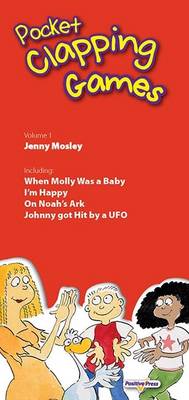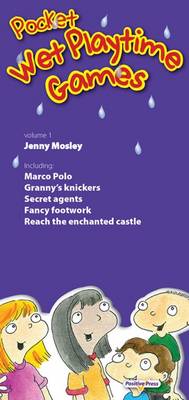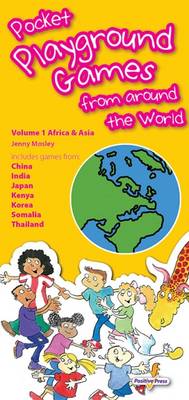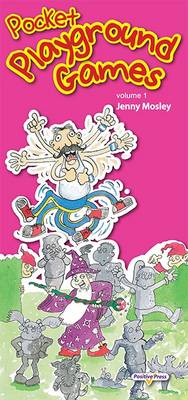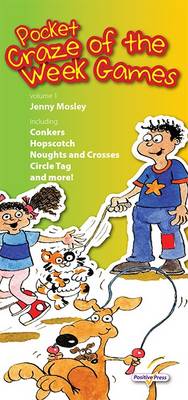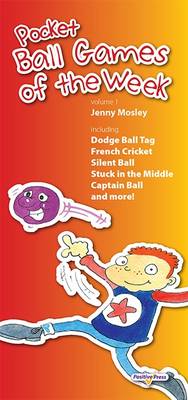Jenny Mosley's Pocket Books
6 total works
Clapping games have been around for over a hundred years and may just seem like great fun, but clapping actually has a more valuable role to play in early childhood development. Clapping can be used to communicate, help improve cognitive skills and boost coordination in young children. Clapping games use physical contact and song to foster social relationships, build a sense of community, all helping to encourage cooperation and team work, as well as being a great tool in the classroom for energising, or for re-focusing a class, and as a way of restoring good humour and harmony when children become restless and quarrelsome. Clapping can also inspire creativity as children are very inventive when playing and they love to improvise and adapt games by making up new verses with new actions or just inventing whole new games. So clapping games are constantly evolving and the versions you see here may be slightly different from the ones you are used to.
In our current society - where mobile phones, tablets, computer and augmented reality games seem to rule - it is refreshing to know that children still love to play clapping games in the playground and we hope this handy little pocket book will inspire and engage the children in your school or setting. The games in this Pocket Book are laid out in an easy to understand style.
In our current society - where mobile phones, tablets, computer and augmented reality games seem to rule - it is refreshing to know that children still love to play clapping games in the playground and we hope this handy little pocket book will inspire and engage the children in your school or setting. The games in this Pocket Book are laid out in an easy to understand style.
Every member of the school community feels a sense of gloom when the sky turns grey and it starts to rain. Children can become so restless, excitable and edgy. However, with some creative forethought, wet playtimes can be full of fun and games, helping children to relax and enjoy themselves and making sure that nobody is at a loose end. This booklet is full of lively and exciting games to delight and entertain children. Designed to stimulate a spirit of cooperation and healthy interaction, there are games to suit lots of different moods and interests. There are mind games where children can pit their wits against an opponent and physical games for letting off steam. There are also games of chance to help children understand that it's not about winning and losing, but playing the game and having fun with their friends.
The traditions and traits of different cultures are often reflected through the games that children play. Although many childhood games are very similar, a different culture will often offer an alternative twist which adds to the fun! Pocket Playground Games from Around the World Volume 1 focuses on Africa and Asia, and includes games from China, Korea, Kenya, India and Russia (Russia spans Asia and Europe). The games in these booklets not only encourage energetic exercise, promote valuable social skills and positive relations between the children themselves, they may also encourage children to find out more about the lives of children from other countries, and as schools often have a broad cultural mix themselves, this is an ideal opportunity to engage children in enjoyable activities together. Children with links to these countries often feel very proud that their games are included and you could encourage these children to ask their parents, grandparents and other relatives to teach them more games.The games are set out in a clear, accessible style with easy-to-follow instructions.
Where possible we have included key words, rhymes or chants in the original country's language alongside the English to encourage children to try a different language if they feel like it. For those children with origins in the country concerned, they can feel a special pride in helping to teach the game to others. We hope the games in this book will spark off children's cultural interest and curiosity about these countries and encourage them to see how games link us all together as "one world" through a universal language of fun. Illustrations by Mark Cripps
Where possible we have included key words, rhymes or chants in the original country's language alongside the English to encourage children to try a different language if they feel like it. For those children with origins in the country concerned, they can feel a special pride in helping to teach the game to others. We hope the games in this book will spark off children's cultural interest and curiosity about these countries and encourage them to see how games link us all together as "one world" through a universal language of fun. Illustrations by Mark Cripps
